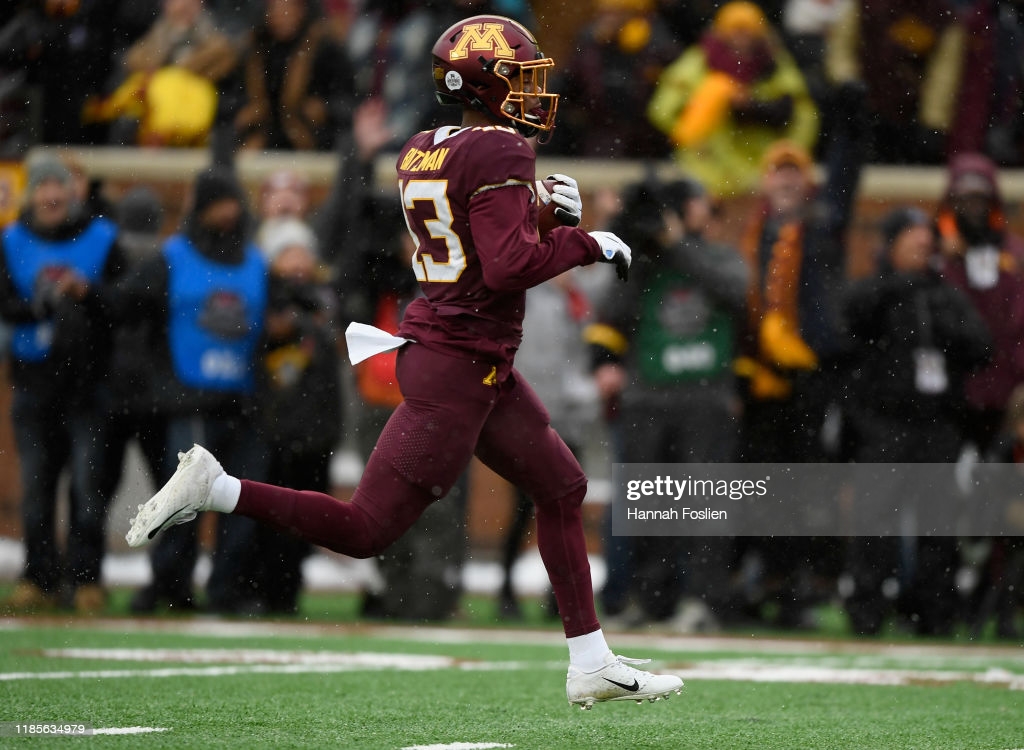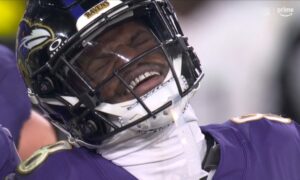The Baltimore Ravens’ history of drafting for the wide receiver position is about as pretty as is the Pittsburgh Steelers’ in drafting cornerbacks during the Kevin Colbert (or at least the Mike Tomlin) era. Their most notable selection to date is Torrey Smith in the second round in 2011.
But they have used three picks in the first round on the position since then, and they’re still hoping for one to fully pan out. The first was Breshad Perriman in 2015, who dealt with injuries early on before somewhat finding his feet elsewhere. In 2019, they drafted Marquise Brown, who has had some production, but not reflective of his draft position, in two years.
Now, there is Rashod Bateman, selected last month with the first of two first-round selections the Ravens had this year. The six-foot Minnesota product put up 2395 yards on 147 career college receptions in 31 games with 19 touchdowns, including going 60-1219-11 in 2019 before only playing five games last season. He averaged 20.3 yards per reception that year.
And he plans to be the answer for the Ravens’ passing game, and for quarterback Lamar Jackson, as the team figures out which part of the chicken-and-egg situation is at fault. Do they not have the receivers Jackson needs, or is he just not that kind of quarterback—at least yet?
But Bateman told reporters that he will be “everything [Jackson] needs. I feel like I’m an all-around receiver. I proved that I can play in the inside, I can play in the slot. At the same time, I just want to be what’s best for him [and] what’s best for the team. So, whatever position that may be, I’m just happy to fill that role”.
Bateman was the second significant addition to the receiving corps this offseason for the Ravens, who also signed former first-round pick Sammy Watkins to a free agent contract. He comes to the team paired with Tylan Wallace, another draft pick at wide receiver in the fourth round.
Will Watkins, Bateman, and Wallace help push the Ravens’ passing game to the next level? Can Brown continue to evolve his game and become a more complete and reliable outlet? What about Miles Boykin and Devin Duvernay? Can they avoid being lost in the shuffle?
Throughout his still-young career, Jackson has leaned pretty heavily on tight end Mark Andrews, helping to make him a Pro Bowler. That is good when it works, of course, but the Ravens have had the least production out of the wide receiver group for the past few years, and that is something that needs to change, because, well, sometimes you need to find your primary targets, and Andrews is not a Travis Kelce-type Large Wide Receiver tight end.








